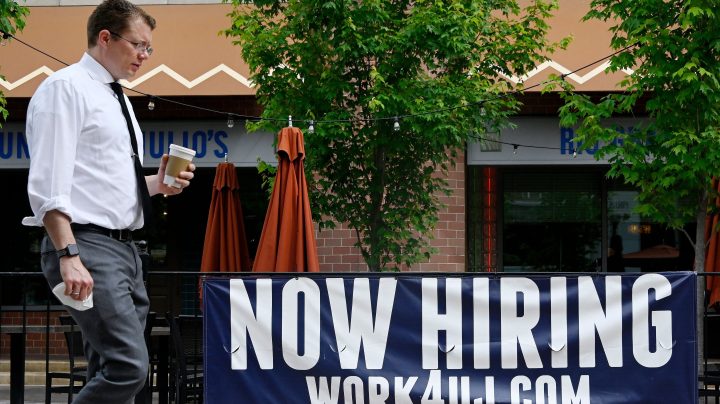
A hot labor market is good, right? So why could it lead to a recession?
A hot labor market is good, right? So why could it lead to a recession?

It’s another big week for labor market data. On Wednesday, we’ll get the latest Job Openings and Labor Turnover survey for November. And on Friday, we’ll get the government’s official jobs tally for December.
Economists will be looking at the unemployment rate as an indicator of whether a recession is on the horizon. While some companies have been laying workers off, most are still desperate to hire workers and are having a hard time finding the workers they need. But those unfilled jobs could limit economic growth.
Throughout the past year, the number of new hires has lagged behind the number of open positions by millions every month.
“We just do not have enough people to fill all those job openings,” said Peter Orazem, an economics professor at Iowa State University.
Too many job vacancies mean that a whole lot of production is not happening, he said. If that continues? “We may literally have a recession, which would be a reduction in output that’s driven by insufficient workers, and still see no appreciable increase in the unemployment rate,” Orazem said.
There are plenty of upsides to a tight labor market. Companies have to raise wages to attract workers, said Teresa Ghilarducci, a labor economist at The New School. Companies also have to innovate to make do with the workers they have.
“So if firms are encouraged to be better managers or to automate some of those labor-intensive jobs, that generally makes for a more productive economy,” Ghilarducci said.
But she warned that productivity will suffer if job vacancies linger in certain sectors, like childcare and home health care.
“And if we don’t get workers in those jobs, we will choke off productivity, because women and adult children who take care of their parents won’t be able to go to work,” she said.
If employers can’t fill their open positions, they’re more likely to hang on to their existing employees, according to Megan Greene, global chief economist at the Kroll Institute.
“Because it was so hard to find them and hire them to begin with, and they’re hoping they can weather a shortened, shallow recession without having to lay workers off,” she said.
That would cause the unemployment rate to stay low. If that happens, Greene said the Federal Reserve might assume that the economy is humming along — even if other indicators like consumer spending are slowing down.
“And so they’ll continue to tighten policy and hike rates, not realizing that actually there’s a big slowdown in activity,” Green said.
And that, she added, could cause a recession itself.
There’s a lot happening in the world. Through it all, Marketplace is here for you.
You rely on Marketplace to break down the world’s events and tell you how it affects you in a fact-based, approachable way. We rely on your financial support to keep making that possible.
Your donation today powers the independent journalism that you rely on. For just $5/month, you can help sustain Marketplace so we can keep reporting on the things that matter to you.











